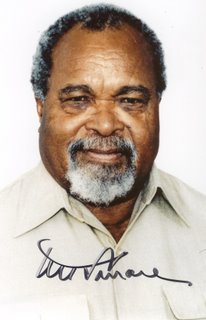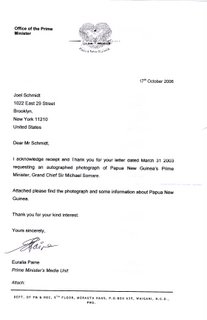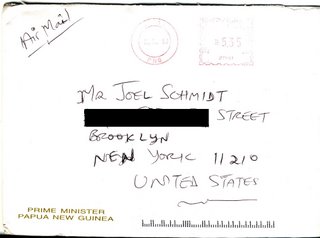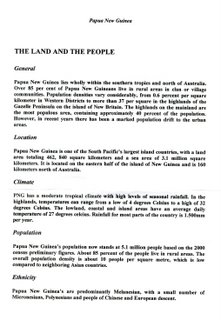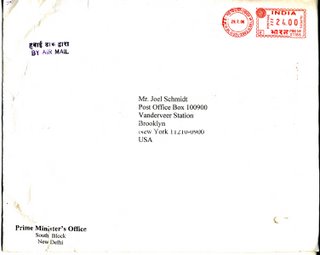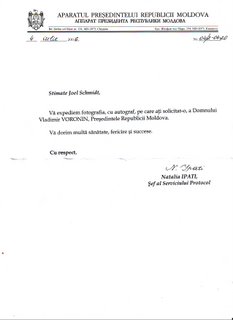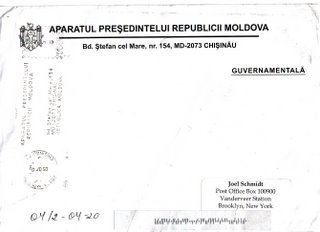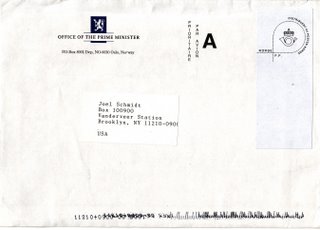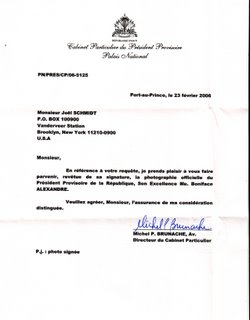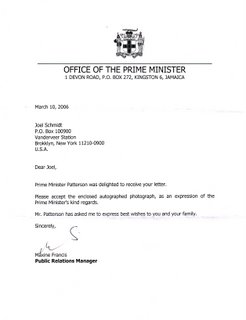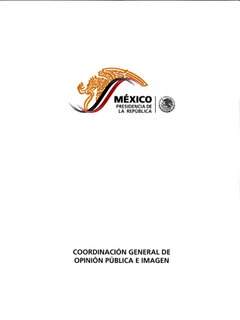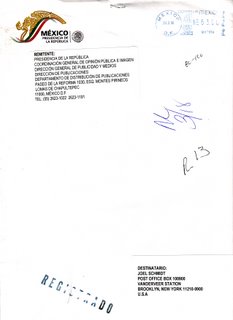Dear Friends,
I have just returned from an extensive trip through Southern Africa. Of the eight countries visited Zimbabwe was by far in the most dire of straits. I am dedicating this space in my blog to spread the word and let people know that there are people suffering on a colossal scale that is nothing short of mind-boggling.
Zimbabwe is a country on it's knees. It's
authoritarian leader, President Robert Mugabe, has reduced the country to shambles and
lost touch with reality. Referred to by Condi Rice as an "
outpost of tyranny" Zimbabwe is a place where human rights are systematically
ignored and trampled on. The result is suffering and sacrifice by the people that is beyond belief.
Imagine living in a country where opposition leaders are
arrested and brutally beaten, in which
torture is commonplace, where the
police vicously attack women and children, where
elections are rigged, where
thugs roam freely, and a place in which
ambulances are no longer able to go out to pick up patients because of fuel shortages.
Ox-drawn ambulances are a luxury.
The statistics are, literally, off the charts.
At '34 years' the women of Zimbabwe have the
lowest life expectancy in the world (
unofficially it may be as low as 30 years). Every fourth child is an orphan;
according to the UN "Zimbabwe has the highest number of orphans per capita in the world."The official annual inflation rate, currently over 1,000% and rising, is also the highest in the world (
unofficially it is said to be over 2,000%).
According to
UNICEF, "A child dies every 15 minutes due to HIV/AIDS in Zimbabwe."
Zimbabwe has registered the fastest rise in child mortality rates in the world; No fewer than one in eight children will die before the age of five.Eighty percent of the population is
unemployed.
Toilet paper is an "
unimagined luxury."
An independent free press will soon be all but a
distant memory.
Imagine living in a place where it is considered
progress when the HIV/AIDS infection rate, currently at 18% of the population, is only the
fourth worst in the world.
Citing its expense, Zimbabwe has
ceased producing passports and the country is
no longer connected to the internet. Even world famous
Victoria Falls, the largest sheet of falling water in the world, is
suffering.
The price for bread and other basics routinely doubles overnight. The International Herald Tribune
reports the rural poor have resorted to eating field mice.
Infant children are selling on the streets of Harare, the capital, for the equivalent of forty US cents.
Unsold infants are dumped in city drains and sewers. The country is now referred to as
the land of dying children.
It is now a place where
dying is a luxury.
Welcome to Zimbabwe: Home of
the quiet genocide.
I traveled to Zimbabwe to see the suffering first-hand. As an American born and bred in New York City, nothing I ever experienced could ever come close to the suffering currently being imposed on the vast majority of the people in Zimbabwe. As a citizen of the world I felt it was my duty to see for myself how others, in the world's disadvantaged regions, are living wretched and anguished lives.
In our travels we stumbled upon a remote village in Matabeleland in Western-Central Zimbabwe.
According to a doctor working in the area, “Children are much smaller than they should be for their age. A child that you think is a healthy two-year-old is probably a very underfed four-year old.”
It was on a very rural and remote stretch of road between Buluwayo and Victoria Falls when we needed to refuel with the jerry cans gasoline we had brought with us from South Africa. Cognizant of the scarcity of fuel and the resulting danger of refueling in public, we ventured a few hundred feet off the main road onto a dirt track extending into the countryside. While emptying our jerry cans of fuel into our gas tank, we realized we had actually entered a well camouflaged village of primitive man-made huts with thatched roofs.
We soon noticed about a dozen children eying us from a distance. The children would cautiously come closer and closer until they were all around us eyes agog. I vividly remember a boy who must have been about seven carry around a boy on his back who could not have been more than 18 months old. I removed a pack of 12 kosher Israeli wafers we had with us and distributed it to the children.
Before long a mother emerged to see what was going on. In the ensuing conversation I had with her she revealed that all they can afford to eat is maize and that even that is in short supply and therefore they are not eating nearly as much as they should. I gave her canned sardines we had brought with us from the states and she was oh so grateful. We exchanged addresses and I gave her 250 Zimbabwean dollars; enough for one international postage stamp. She warned me though that mail delivery to the village is very erratic with deliveries, at best, only made once a month.
I appeal to you, dear reader, let us help these unfortunate souls, let us help the people of this village. Let us prevent the quiet genocide from reaching this village. One of the ways we can help is by sending care pachages directly to Norah Lupahla, the woman I exchanged addresses with in the village. Norah is a teacher at the barely functional Dopota Primary School. Her address is:
Norah Luphala
Dopota Primary School
PO Box 21
Dete
Zimbabwe
Together we can show Norah the world has not forgotten Zimbabwe and it's quiet genocide. Let's act today, and please spread the word so that others may help as well.
Photos are here.Dopota village Norah Luphala with a can of American, and kosher, sardines.
Norah Luphala with a can of American, and kosher, sardines.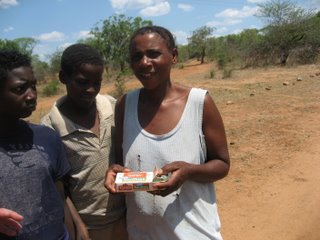 Myself handing out Israeli wafers
Myself handing out Israeli wafers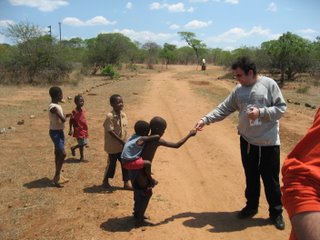
Distributing more food

My colleague and I with village children in the village kitchen
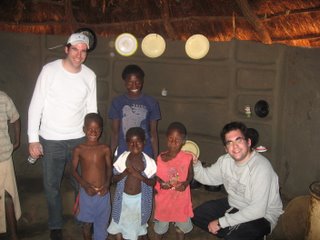 Under
Under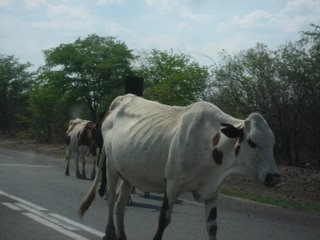 nourished livestock
nourished livestockVillagers
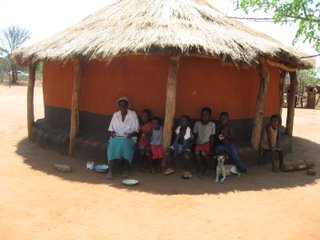
Refueling in front of the village
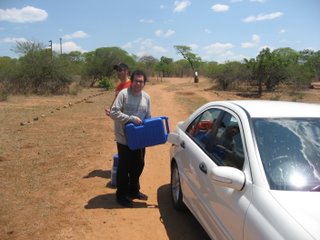
Roadside vendors
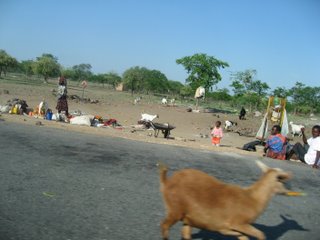
Beit Bridge border crossing going from South Africa into Zimbabwe
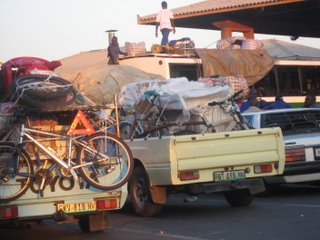
Vehicles entering Zimbabwe make sure to bring with them all the fuel they need. We noticed this vehicle about 100 kilometers from the South African border.
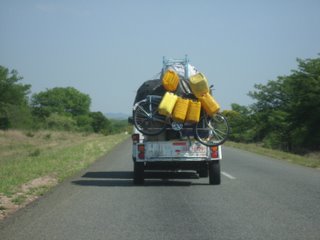
A donkey cart
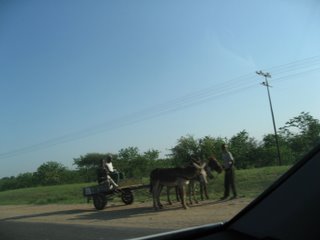
A closed petrol station. We could not find even one petrol station with gasoline.
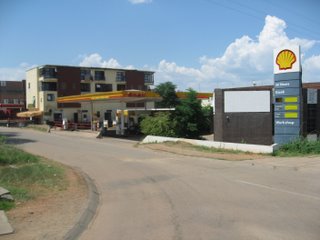
My visa
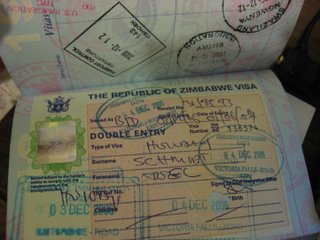
Those wishing to visit Zimbabwe may contact me for details on how to do so. However I must caution you that traveling in Zimbabwe is an endeavor fraught with danger. In our travels through Zimbabwe we met no other Americans and only two other tourists. For good reason.
Consider the following report filed by an American ministry operating in Zimbabwe:
Frontline Fellowship has been working in Zimbabwe since 1982. As the situation in Zimbabwe deteriorated, so we increased our activities in that desperately needy country. In recent months, we have distributed many tonnes of emergency relief aid to starving Christians in Zimbabwe. Amidst the state-orchestrated racial hatred, lawlessness and savagery, Frontline mission work in Zimbabwe has become particularly difficult and dangerous.
On one mission trip into Zimbabwe, we were told of a white farm manager of one of the opposition Members of Parliament, who was viciously beaten by Mugabe's thugs, and of an American who was killed while on a relief mission to Zimbabwe. He was shot at a roadblock while seated behind the steering wheel. He remained there, slumped over his steering wheel, for hours, slowly bleeding to death. Although the ZANU-PF officials claimed that he had tried to run through the roadblock, passersby said that that was impossible, because they saw him slumped over in his vehicle, parked at the roadblock, with no indication that the vehicle was moving when he was murdered.
To travel anywhere in Zimbabwe today requires going through numerous roadblocks, which can be manned by police, army, war veterans, ZANU youth brigade or Mugabe's special police, the CIO. Some roadblocks are manned by the North Korean trained 5th Brigade. Food found in vehicles is summarily confiscated. Outside the shops there can be long lines of people, waiting for basic foodstuffs. Even bread and milk are in such short supply that it creates a sensation when any shop has stocks. With great excitement, people run and phone to inform their friends and relatives of the event!
The shortage of petrol is chronic. It is now common to see long lines of unoccupied cars outside petrol stations. These cars can be stuck for many days, or weeks, waiting for some delivery of petrol to the garage. Nor can one bring in extra fuel in jerry cans, as that is illegal and fuel cans are another item searched for at roadblocks. Petrol went up 320% last night.
















 nourished livestock
nourished livestock







